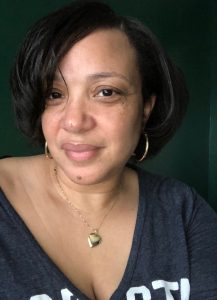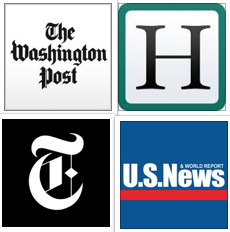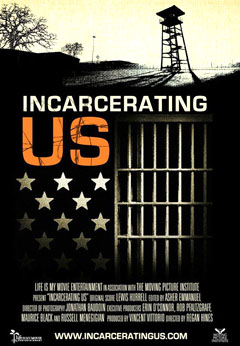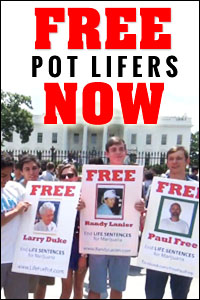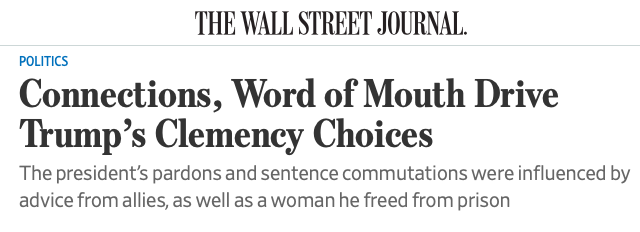
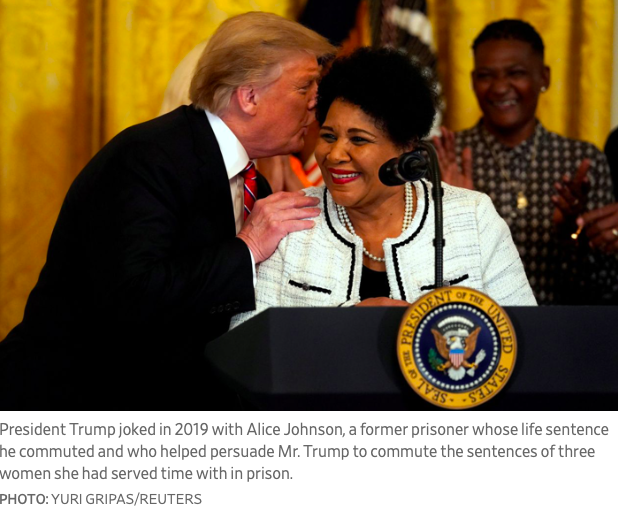
President Trump granted a series of pardons and sentence commutations this week, a list that featured high-profile cases involving political corruption and corporate greed as well as more routine drug and fraud charges. In the 11 cases, Mr. Trump leaned on advice from friends and allies, as well as a woman he freed from prison in a previous clemency round.
“I really rely on the recommendations of people that know them,” the president told reporters Tuesday in explaining his decisions.
Alice Johnson, a woman whose life sentence Mr. Trump commuted in 2018, helped convince Mr. Trump to, in turn, commute the sentences of three women she had served time with in prison. She said she included the women—Tynice Nichole Hall and Crystal Munoz, both convicted on drug offenses, and Judith Negron, the part-owner of a health-care company accused of defrauding the federal government—on a list of names after Mr. Trump asked at an October event for recommendations on whom to pardon.
Some advocates said they saw new opportunities for clemency under Mr. Trump. Amy Ralston Povah, the founder of the CAN-DO Foundation, which seeks clemency for nonviolent drug offenders, said she has found this administration to be open to their entreaties. The organization has met with White House officials and provided a list of recommendations for clemency, including Mses. Hall, Munoz and Negron, after Ms. Johnson was granted a commutation.
“I think that they’re very open to seeing the cases that would never see the light of day because they’re not high-profile cases,” she said.
Read the entire story here








